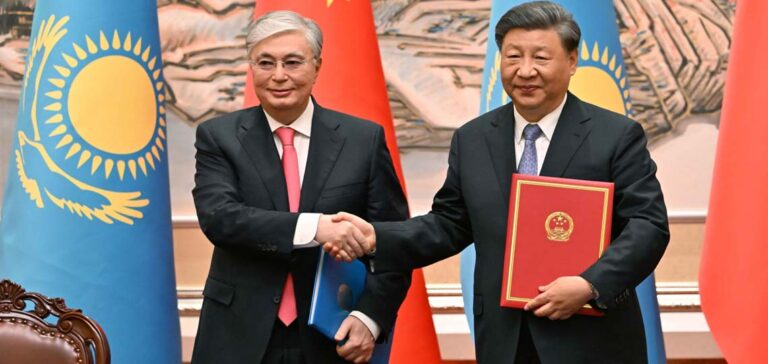In a major strategic move, Kazakhstan has consolidated its leading position on the world uranium market by signing a long-term contract with China National Uranium Corporation Limited (CNNC). This partnership is a further milestone in economic and energy cooperation between the Asian powerhouse and the Central Asian state, illustrating a geopolitical dynamic in the throes of change.
A Veil of Discretion over Contract Details
Kazatomprom, Kazakhstan’s uranium giant, remains tight-lipped about the details of the contract, citing confidentiality and commercial sensitivity. However, this reservation does not obscure the scope of the agreement, nor its potential impact on the global energy sector. It also underlines Kazakhstan’s growing importance in the global geopolitical game, as a key supplier of strategic raw materials.
Geopolitical implications of a wide-ranging agreement
The relevance of this agreement was accentuated by the recent visit of Emmanuel Macron, President of the French Republic, which saw the signing of a nuclear cooperation agreement between Kazatomprom and the French company Framatome. This signals not only increased international recognition of Kazakhstan, but also a diversified interest in its natural resources on the part of world powers.
Kazakhstan at the Heart of Energetic Power Games
It’s not just the Sino-Kazakh relationship that benefits from these initiatives, but also partnerships with other key players such as Russia, France and potentially South Korea, underlining the multipolar nature of contemporary nuclear cooperation. Russia, traditionally influential in Central Asia, is now seeing its position challenged by new alliances and strategic agreements that are redefining regional balances.
Towards Diversification of Uranium Supply
The announcement of this contract comes at a time when the security of uranium supplies is becoming a pre-eminent issue. Recent developments in Niger and the entry of Uzbekistan, thanks to the extraction activities of French company Orano, underline the need to diversify sources of supply. In this complex context, Kazakhstan has established itself as a central hub for uranium supplies, reinforcing its position as an essential partner.
Future Prospects for the Kazakh Nuclear Sector
The prospect of Kazakhstan’s first nuclear power plant, which will be put to a referendum by the end of the year, adds another dimension to the country’s energy strategy. This step represents not only a technological advance, but also an assertion of sovereignty, with repercussions that will be felt well beyond national borders.






















